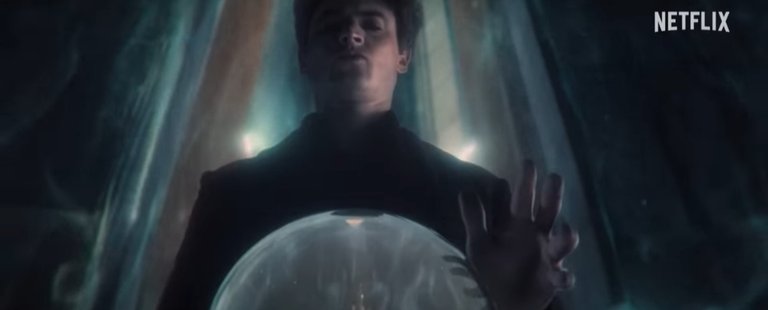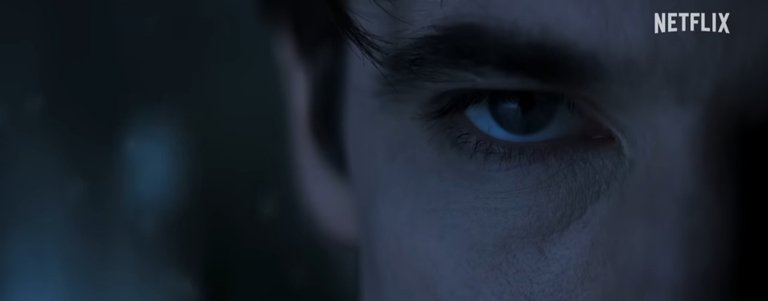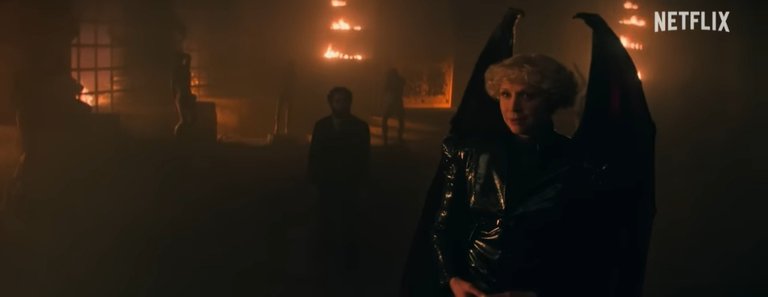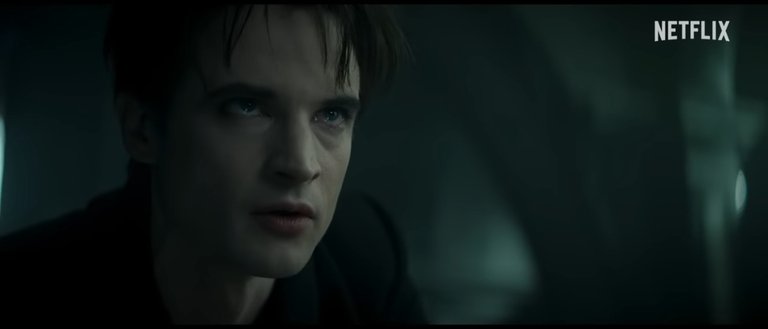🌙 The Sandman

I can't even tell the amount of times I've seen “The Sandman” on my Netflix Movie list and avoided it each time.
Perhaps it was because I had been lately disappointed with overly flashy trailers and paper-thin characters and paper-thin plots of too many fantasy series. There was something that dragged me back though. Perhaps it is just the mutters I heard among followers of Neil Gaiman graphic novels. Or maybe it was the cold lifeless pictures of Morpheus--tall, pale, brooding, with stars in his eyes, and silence in his tread. Or then again, I simply needed to get out of myself into a more poetic reality than real life.
Neil Gaiman comics are known to be strange, surreal and perhaps even intellectual. Then, however, it turned into a cultural moment: the trailer with its mutters of Dream and Death, the casting, the visuals, it all fell into place.
Then I read somebody describe it as “one of the best, boldest, most creative shows Netflix has ever produced.” That, coupled with the hum of anticipation that “animated scenes are ripped off classic panels” , led me to think I might be seeing something memorable.
And so one quiet night I hit play.
And in a few minutes I was off. Not only to watch, but to dream with open eyes.
However, I did not get what I expected.
This is not all fantasy. It’s philosophy. Myth. Grief. Power. A polished human, with all the skin gone and replaced with velvet and ash.
The Sandman is more than a show. It is an experience that creeps into your head, sits in your chest and alters the way you look at stories, grief, and sleep itself.

In the first episode, Dream - also referred to as Morpheus, Lord of the Dreaming - is captured by mortal occultists during a botched ritual. He loses his tools, is imprisoned more than a century, and during his absence the world starts falling apart. Human beings enter into eternal slumber. Dreams turn into nightmares. In dark crevices of the mind chaos blossoms.
However, Morpheus is not just any other hero. He is not noisy. He does not make speeches or punch walls. He is mysterious, dangerous, melancholic. Dream, perfectly played by Tom Sturridge, whispers, and the voice sounds like thunder covered with silk. When he makes an appearance, the air moves.
It was not his strength that impressed me, but his isolation. His mute pain. He is a god who has lost his way to connect. And to see him re-learn that, via friendships, via betrayal, via grief, was hauntingly beautiful.

The Sandman unfolds in the human world as well as the Dreaming, a world that is as influenced by imagination, memory, fear, and desire. However, the atmosphere makes this series special. It does not only present your fantasy. It causes you to feel it.
The images are lyric: the dreamscapes, the libraries of old, the worlds of eternal darkness. It is lyrical writing. It seems each line is purposeful. You do not merely watch The Sandman but you drink it up like some weird delicately crafted poem.
Every episode has the feeling of a short story out of a collection of dreams; some of them are terribly emotional, some are horrifying, and all of them are memorable.

As well as Dream, The Sandman is full of complex characters. My favorite? Death.
Yes, Death.
Quietly radiant played by Kirby Howell-Baptiste, Death is not the grim reaper we were socialized to fear. She’s kind. Grounded. Humans. There is an episode, only one day with her company, when she walks with souls at the time of their death. And it broke me. In the kindest, most needed manner possible.

Next is Johanna Constantine, a cynical demon-exorcist who lives with a heavy burden of her past. And Rose Walker, a vortex of dreams, who does not even realize that she is breaking down the dimensions between worlds. and the Corinthian--as he is the nightmare with a grin full of teeth, so is he nearly seductive, in his hideousness.
Every character adds a human and raw element to the show. They are not mere fragments of a fantasy story. They are reflections, of trauma, of hope, of identity, of regret.
The Sandman isn’t about good vs. evil. It’s about balance. Change. Purpose. It asks questions you don’t expect from a fantasy series:
What happens when dreams die?
What do we owe the people we create?
Can gods change?
Are we more ourselves in dreams than in waking life?
One is the one that barely even involves Dream at all- it is about a man who is given immortality. Dream visits him in a pub once every century. It is one episode which caused me to weep. Not due to spectacle, but due to the sincere, barbaric gaze of time, loneliness, and the purpose of belonging.

The feeling of watching The Sandman was like walking across the silent nooks and crannies of my mind. It forced me to look at aspects of myself that I neglect in day-to-day life, the child who still follows dreams, the grown-up who loses things and grieves, the poet who prefers to shelter behind work.
It told me that dreams count. That they are sacred. That the dreams that we dream at night are as true as the realities of the day.
I began to write a journal again after completing the series. Not only goals or plans, dreams. Nightmares. Symbols. I recalled how I used to believe so in the power of the unseen. And I desired that again.
The television show did not only amuse me. It transformed me.

Naturally, not everyone can like The Sandman. It is draggy here and there. It does not give all the explanations. It meanders. It is more of a reflection than a solution. Yet perhaps that is the point. Dreams do not follow the straight and narrow. They are not supposed to be easy. They are supposed to be experienced, struggled over, recalled… or not.
However, when you give in--and I mean really give in--The Sandman will take you somewhere that you did not realize you had to go.
If you’re tired of formulaic fantasy…
If you crave stories with soul…
If you want to feel something ancient, strange, and uncomfortably beautiful…
Then dream with The Sandman.
It’s more than a show. It’s an elegy for the stories we lose when we stop believing. It’s a love letter to those of us who feel too much, dream too hard, or ache too often.
And if you’re like me, by the time the credits roll, you’ll be changed. Just a little. But deeply.
Because sometimes, all it takes is one dream to wake you up.
Hello, @vickystory. It's lovely meeting you. Kindly remember that all pictures must be sourced properly so as not to blacklisted for copyright infringement. Only original content is supported. This means that there is zero tolerance for AI-GENERATED Content or plagiarism. Of any form. Engagement with other authors is paramount and encouraged.
Looking forward to more of you here. Please, ensure you abide by all the rules of the Blockchain. Welcome to Cine TV.🌺
Thank you, I will abide by the rules
What a beautiful review. I'm not saying it's "beautiful" to compliment you, but because it truly is beautiful, passionate, and poetic. I loved your definition: "A polished human, with all the skin gone and replaced with velvet and ash." The series also struck me because those Immortals are always with us: Dream, Death, Desire, Desperation...
I'm glad you liked it. You're right they all stay with us. Maybe even longer than we can think of